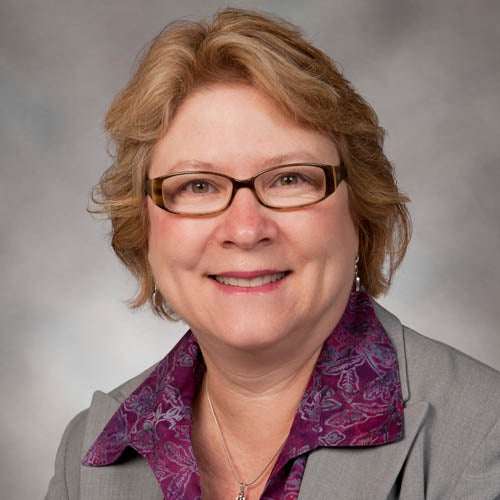Galveston native Cindy Farach-Carson, PhD, is an active researcher with a federally and industry-funded laboratory focused on tissue engineering, extracellular matrix and cancer biology. She is a pioneer in the use of complex 3D systems for cell and microtissue culture of both normal and cancerous tissues.
The author of more than 200 publications and co-editor of a seven-volume series, Topics in Bone Biology, she frequently serves as a reviewer for both grant applications and journal articles. She has mentored dozens of graduate students and postdoctoral fellows in interdisciplinary and translational research and hosted hundreds of trainees for research rotations. She teaches in both traditional lecture and problem-based formats and believes that the best teachers are those who can share their passion for learning and discovery with their students.
After 11 years on the faculty of The University of Texas Health Science Center at Houston (UTHealth) School of Dentistry, Cindy left in 1998 to join the faculty of the University of Delaware as a professor of biological and materials sciences. She was the founding director of the Center for Translational Cancer Research, a role she began in 2005 that brought together four institutions and hospitals with a focus on accelerating translation of cancer research findings to the clinic. She returned to Rice University in 2009 to provide scientific leadership and vision for the BioScience Research Collaborative and to foster a climate of interdisciplinary and translational research and innovation.
In 2014, Cindy became a strategic advisor for the Texas Medical Center, and in 2016 she rejoined the UTHealth School of Dentistry faculty as director of clinical and translational research and professor in the Department of Diagnostic and Biomedical Sciences. Her current projects include building collaborations and supporting infrastructure among biomedical research, clinical and educational institutions in the School of Dentistry and throughout the Texas Medical Center.
Cindy believes that including graduate and undergraduate students, postdoctoral fellows and residents on collaborative teams ensures that the projects will be successful, both in terms of research productivity and educational goals. She is passionate about bringing research from bench discovery through the marketplace and finally to the clinic. Toward that end, her team is currently exploring use of tissue regeneration techniques to restore salivary glands lost to patients after radiation for head/neck cancer, resulting in severe xerostomia (dry mouth).

